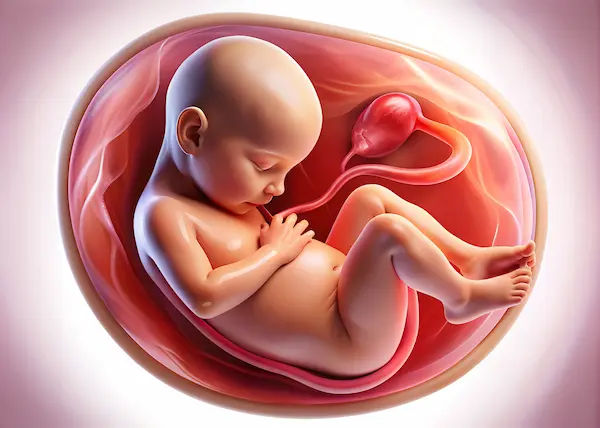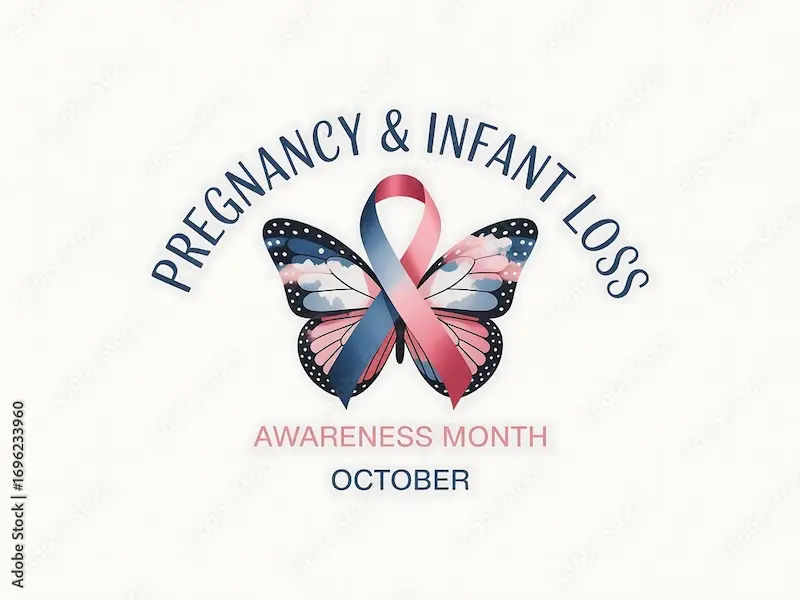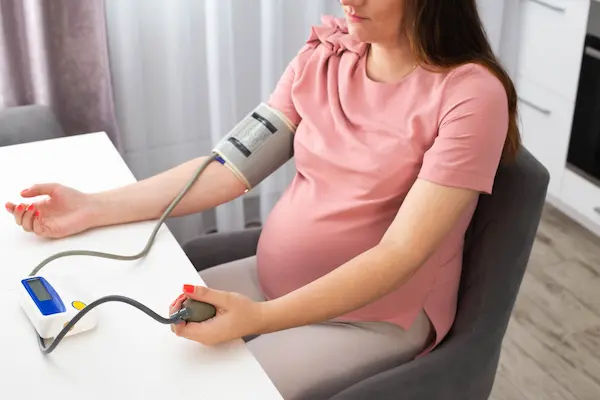8 Weeks Pregnant: Your Official Guide to Symptoms & Baby Development
Know about the 8 weeks pregnant, symptoms, baby development, major milestones, symptoms, pregnancy checklist and lifestyle modifications and more.

Written by Dr. J T Hema Pratima
Reviewed by Dr. Shaik Abdul Kalam MD (Physician)
Last updated on 13th Jan, 2026

Introduction
Welcome to 8 weeks pregnant! You're now two months into your incredible journey, and things are moving rapidly, even if you might not look pregnant yet. This week is a monumental one in your baby's development, as the embryo officially graduates to fetus status. If you're riding a rollercoaster of symptoms at 8 weeks pregnant—from relentless nausea to sheer exhaustion, know that you are not alone. This guide is designed to walk you through exactly what to expect this week, from the fascinating changes happening to your baby, the size of a raspberry, to the very real and often challenging changes happening to you.
Your Baby's Development at 8 Weeks
At 8 weeks pregnant, your baby is undergoing a phenomenal transformation. This period is crucial for the formation of almost all major organs and body systems.
Consult a Gynaecologist for Personalised Advice
How Big is Your Baby?
Your baby is now about the size of a raspberry or a kidney bean, measuring approximately 0.6 inches (1.6 cm) from crown to rump. While still incredibly small, your baby is a million times larger than the original fertilised egg just two months ago.
Major Developmental Milestones This Week
Limb Formation and Movement
This week, your baby's arms and legs are growing longer, and little hands and feet are emerging from what were once just tiny buds. Fingers and toes are beginning to form, though they are still webbed. Amazingly, your baby is starting to make spontaneous movements, such as slight twitches. You won't feel these movements for several more weeks, but they mark the beginning of your little one's activity.
Organ System Development
The major groundwork is being laid at a breathtaking pace:
- Heart: The tiny heart, now divided into four chambers, is beating at an impressive rate of about 150-170 beats per minute, nearly twice as fast as your own.
- Brain: Nerve cells are branching out, forming the early neural pathways. The brain is developing at a rapid rate.
- Facial Features: The eyes are becoming more obvious (though still positioned on the sides of the head), the tip of the nose is forming, and the upper lip is taking shape. The ears are also continuing to develop.
- Internal Organs: The intestines are starting to form, and the kidneys are beginning to function.
Your Body at 8 Weeks Pregnant: Common Symptoms
Your body is working overtime to support your growing baby, primarily due to soaring levels of pregnancy hormones like progesterone and hCG. This can lead to a host of early pregnancy symptoms.
Navigating Morning Sickness
Despite its name, "morning" sickness can strike at any time of day or night. It's one of the most common symptoms at 8 weeks pregnant. To manage it, try eating small, frequent meals throughout the day instead of three large ones. Keep bland snacks like crackers by your bed and eat a few before you even get up in the morning. Ginger tea, lemon water, and acupressure wristbands can also provide relief for some. If your nausea is severe and you are unable to keep any food or liquids down, it is crucial to consult a doctor online with Apollo24|7 to rule out hyperemesis gravidarum and get professional management advice.
Overwhelming Fatigue and How to Cope
Don't be surprised if you feel utterly exhausted. Your body is using massive amounts of energy to build the placenta and support your baby's development. Listen to your body and rest when you can. Short naps, going to bed earlier, and delegating tasks can help you manage this early pregnancy fatigue.
Other Frequent Symptoms
- Tender, Swollen Breasts: Your breasts may feel sore, tingly, and heavier as they prepare for future breastfeeding.
- Food Aversions and Cravings: You might suddenly despise foods you once loved or crave unusual combinations. This is normal and often linked to hormonal shifts.
- Frequent Urination: Your growing uterus is beginning to press on your bladder, leading to more trips to the bathroom.
- Mild Cramping or Spotting: Some light cramping (without bleeding) is normal as your uterus expands. Very light spotting can also occur, but should always be monitored. Any bleeding accompanied by pain should be evaluated by a doctor immediately.
Your 8-Week Pregnancy Checklist
Staying organised can help you feel more in control during this time of change.
Schedule Your First Prenatal Visit
If you haven't already, now is the time to schedule your first prenatal visit. This appointment, which often happens around 8-10 weeks, is a comprehensive one. Your doctor will likely confirm the pregnancy, check your overall health, estimate your due date, and order a range of blood tests. Apollo24|7 offers convenient home collection for these initial prenatal blood panels, making the process easier for you.
Nutrition and Prenatal Vitamins
Focus on a balanced pregnancy diet rich in folate, iron, calcium, and protein. Continue taking your prenatal vitamin daily, as it provides essential nutrients like folic acid, which is critical for preventing neural tube defects.
Lifestyle Adjustments for a Healthy Pregnancy
It includes:
- Stay Hydrated: Drink plenty of water throughout the day.
- Avoid Harmful Substances: This includes alcohol, smoking, and recreational drugs.
- Discuss Medications: Review any prescription or over-the-counter medications you take with your doctor to ensure they are safe during pregnancy.
- Incorporate Gentle Exercise: Activities like walking, swimming, or prenatal yoga can boost your energy and mood.
When to Seek Medical Advice?
While many symptoms are normal, it's important to know the red flags. Contact your healthcare provider immediately if you experience:
- Heavy bleeding or bleeding with clots.
- Severe abdominal pain or cramping.
- Fever over 100.4°F (38°C).
- Painful or burning urination.
- Severe dizziness or fainting.
For any concerns about your symptoms, you can quickly connect with a specialist for a consultation through Apollo24|7's online platform.
Conclusion
Reaching the 8-week pregnant mark is a significant achievement. You are navigating the often-turbulent waters of the first trimester with resilience. While the physical symptoms can be demanding, remember that they are a sign of the profound work your body is doing to nurture your growing baby. In the coming weeks, your pregnancy symptoms may begin to ease as you approach the second trimester. Continue to prioritise your health, attend your prenatal appointments, and don't hesitate to seek support and ask questions. This journey is unique, and being informed is your greatest tool. Celebrate each milestone and look forward to the exciting developments just around the corner.
Consult a Gynaecologist for Personalised Advice
Consult a Gynaecologist for Personalised Advice

Dr. Mona Yadav
Obstetrician and Gynaecologist
19 Years • MBBS, MD (Obstetrics & Gynaecology)
Dombivli
Nulife multispeciality, Dombivli

Dr. Parul Sharma
Obstetrician and Gynaecologist
8 Years • MBBS, MS (Obstetrics & Gynaecology)
New Delhi
THE DOCTORS NESST, New Delhi

Dr. Debajyoti Goswami
Obstetrician and Gynaecologist
10 Years • MBBS,D.G.O(DNB),Adv. Infertility Tech.(AIIMS),Fellowship in Diabetes(U.K),Comprehensive Abortion Care(Govt. Of W.B), Certificate in Clinical Embryology(AIIMS, BHUBANESWAR)
Bankura
D.G Clinic, Bankura
(25+ Patients)

Dr. Asha Rani Singh
Obstetrician and Gynaecologist
24 Years • MBBS DGO
Delhi
Dr Asha Rani Singh Clinic, Delhi

Dr. Shyamala Devi
Obstetrician and Gynaecologist
38 Years • MBBS, MS Obstetrics & Gynaecology
Vijayawada
Sri Shivshakti Nilayam, Vijayawada
Consult a Gynaecologist for Personalised Advice

Dr. Mona Yadav
Obstetrician and Gynaecologist
19 Years • MBBS, MD (Obstetrics & Gynaecology)
Dombivli
Nulife multispeciality, Dombivli

Dr. Parul Sharma
Obstetrician and Gynaecologist
8 Years • MBBS, MS (Obstetrics & Gynaecology)
New Delhi
THE DOCTORS NESST, New Delhi

Dr. Debajyoti Goswami
Obstetrician and Gynaecologist
10 Years • MBBS,D.G.O(DNB),Adv. Infertility Tech.(AIIMS),Fellowship in Diabetes(U.K),Comprehensive Abortion Care(Govt. Of W.B), Certificate in Clinical Embryology(AIIMS, BHUBANESWAR)
Bankura
D.G Clinic, Bankura
(25+ Patients)

Dr. Asha Rani Singh
Obstetrician and Gynaecologist
24 Years • MBBS DGO
Delhi
Dr Asha Rani Singh Clinic, Delhi

Dr. Shyamala Devi
Obstetrician and Gynaecologist
38 Years • MBBS, MS Obstetrics & Gynaecology
Vijayawada
Sri Shivshakti Nilayam, Vijayawada
More articles from pregnancy
Frequently Asked Questions
Is it normal not to have symptoms at 8 weeks pregnant?
Yes, it is possible. Every pregnancy is different. Some women experience severe symptoms, while others have very few. The absence of symptoms does not necessarily indicate a problem, but it's always a good idea to mention it to your doctor for reassurance.
What will an 8-week pregnant ultrasound show?
An ultrasound at this stage can typically confirm the pregnancy is in the uterus, check the fetal heartbeat, measure the baby's size to confirm the due date, and show the early formation of limbs and the yolk sac.
Can you start showing at 8 weeks?
It's uncommon to have a noticeable 'baby bump' at 8 weeks. Any bloating or slight protrusion is likely due to hormonal changes, bloating, and your uterus beginning to expand upward from the pelvis.
What does cramping at 8 weeks pregnant mean?
Mild, occasional cramping without bleeding is usually normal and caused by your uterus stretching and expanding. However, severe, persistent cramping, especially if accompanied by bleeding, requires immediate medical attention.
When does morning sickness end?
For most women, morning sickness starts to improve between weeks 12 and 16 as they enter the second trimester. However, this can vary from person to person.




